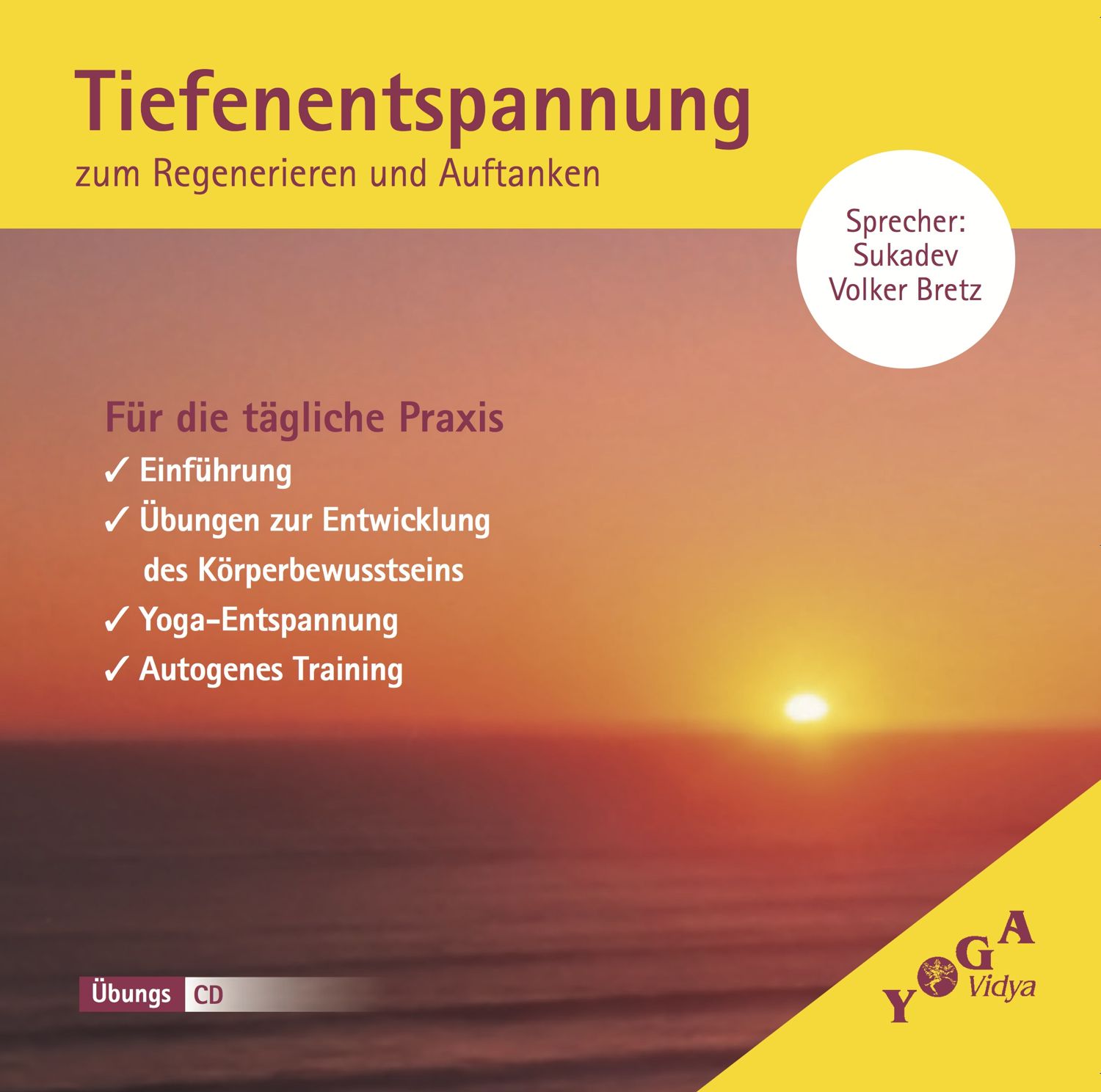Autogenes Training Cd Kostenlos
Autogenic training is a type of relaxation technique that can be used to help reduce anxiety, including that experienced as part of social anxiety disorder (SAD). What is Autogenic Training? Autogenic training is a relaxation technique first introduced by German psychiatrist Johannes Heinrich Schultz in 1932. Schultz noticed that individuals undergoing hypnosis entered a relaxed state in which they experienced feelings of heaviness and warmth, and he sought to recreate that state in people to reduce tension and anxiety.
Check out Progressive Relaxation and Autogenic Training by PT, MS, MA & Stella Benson Carolyn McManus on Amazon Music. Stream ad-free or purchase CD's and MP3s now on. Autogenes Training on Amazon.com. *FREE* shipping on qualifying offers. Download book pdf. In: psychosomatisch. In der psychosomatischen abteilung behandeln wir patienten, die infolge ihrer hautkrankheiten und allergien unter.
Autogenic training works through a series of self-statements about heaviness and warmth in different parts of the body. Through this process, a positive effect is induced on the. Although less well-known than other such as and, a study in 2008 found efficacy of autogenic training in the treatment of anxiety. Autogenic Training and Social Anxiety Disorder In terms of, autogenic training may aid in relaxation and help to reduce symptoms of anxiety when combined with other forms of treatment. Just as with other forms of relaxation training, autogenic training may help you to feel calm and relaxed in social and performance situations. If you practice autogenic training often enough, the simple words 'I am completely calm' may be enough to induce a state of relaxation in the moment.
Now, follow these steps to practice autogenic training: 1. Take a few slow even breaths. If you have not already, spend a few minutes practicing.
Quietly say to yourself,. 'I am completely calm.' Focus attention on your arms.
Quietly and slowly repeat to yourself six times,. 'My arms are very heavy.'


Then quietly say to yourself,. 'I am completely calm.' Refocus attention on your arms. Quietly and slowly repeat to yourself six times,. 'My arms are very warm.'

Then quietly say to yourself,. 'I am completely calm.' Focus attention on your legs. Quietly and slowly repeat to yourself six times,. 'My legs are very heavy.' Then quietly say to yourself,.
'I am completely calm.' Refocus attention on your legs. Quietly and slowly repeat to yourself six times,. 'My legs are very warm.' Then quietly say to yourself,. 'I am completely calm.' Quietly and slowly repeat to yourself six times,.
'My heartbeat is calm and regular.' Then quietly say to yourself,. 'I am completely calm.'
Quietly and slowly repeat to yourself six times,. 'My breathing is calm and regular.'
Then quietly say to yourself,. 'I am completely calm.'
Quietly and slowly repeat to yourself six times,. 'My abdomen is warm.' Then quietly say to yourself,. 'I am completely calm.' Quietly and slowly repeat to yourself six times,. 'My forehead is pleasantly cool.'
Autogenes Training Auf Deutsch
Then quietly say to yourself,. 'I am completely calm.' Enjoy the feeling of relaxation, warmth and heaviness. When you are ready, quietly say to yourself,.
'Arms firm, breathe deeply, eyes open.' In addition to following these instructions, you may consider using a voice recording, such as the free MP3 audio file offered by McMaster University, in Ontario Canada, with directions on practicing autogenic training. Use of an audio recording will allow you to fully relax and concentrate on the technique. Before You Start For those who suffer with medical conditions or significant psychiatric conditions, consult with your doctor prior to beginning any type of relaxation training exercise. Be sure to stop autogenic training and consult your doctor if you experience feelings of extreme anxiety or restlessness, or any other adverse effects during or after practicing autogenic training. A Word From Verywell Severe social anxiety is not something you have to live with. If you find that self-help relaxation exercises are not making a difference in your symptoms, it is important to visit your doctor and ask for a referral to a mental health professional.
If you feel too nervous or scared to approach your doctor, try confiding in a family member, friend, teacher, or school counselor—whoever you feel that you would be comfortable enough with to share. There are effective treatments for this type of anxiety. The sooner you seek help, the sooner you can feel better. Sources: McMaster University. Autogenic Training. Manzoni GM, Pagnini F, Castelnuovo G, Molinari E. Relaxation training for anxiety: a ten-years systematic review with meta-analysis.
BMC Psychiatry. University of Melbourne Counselling and Psychological Services.
Accessed June 23, 2015.